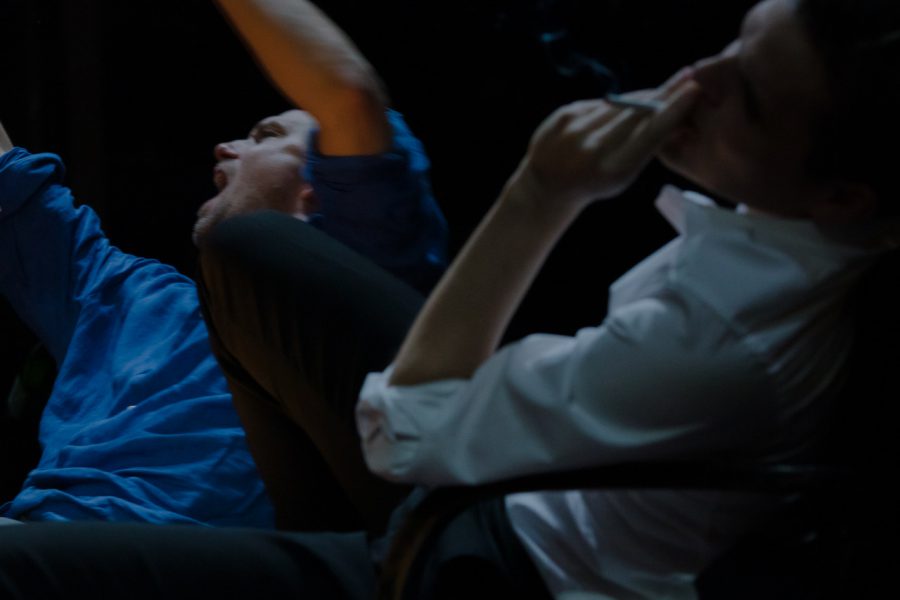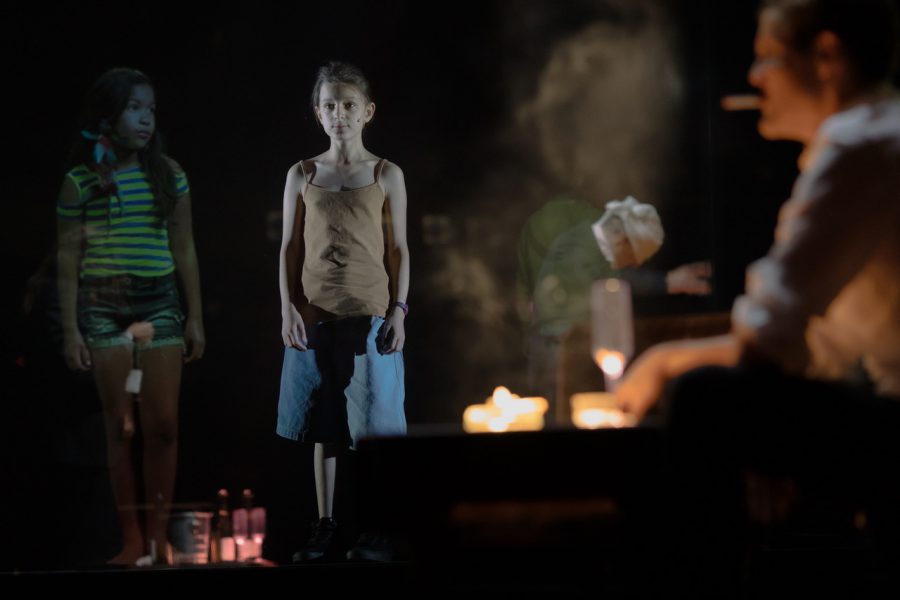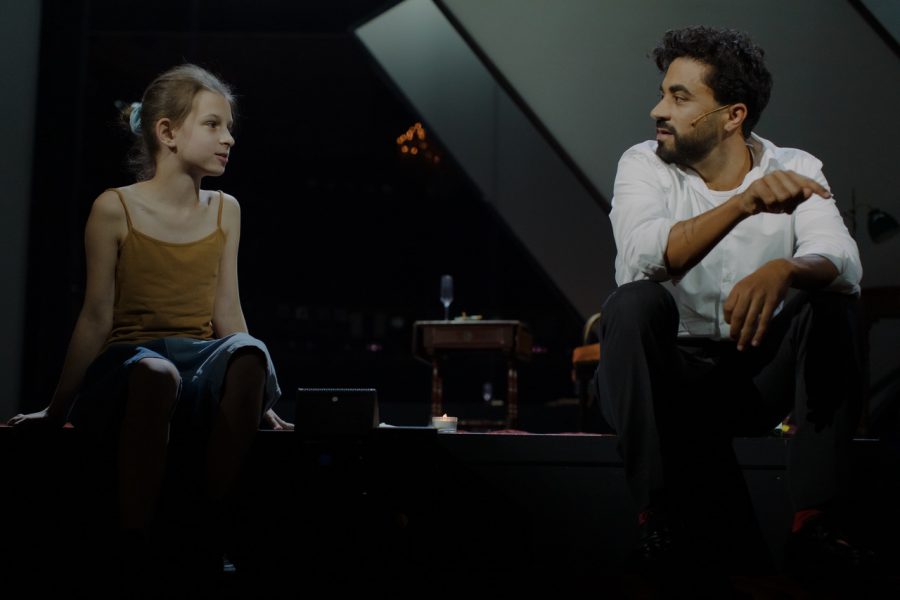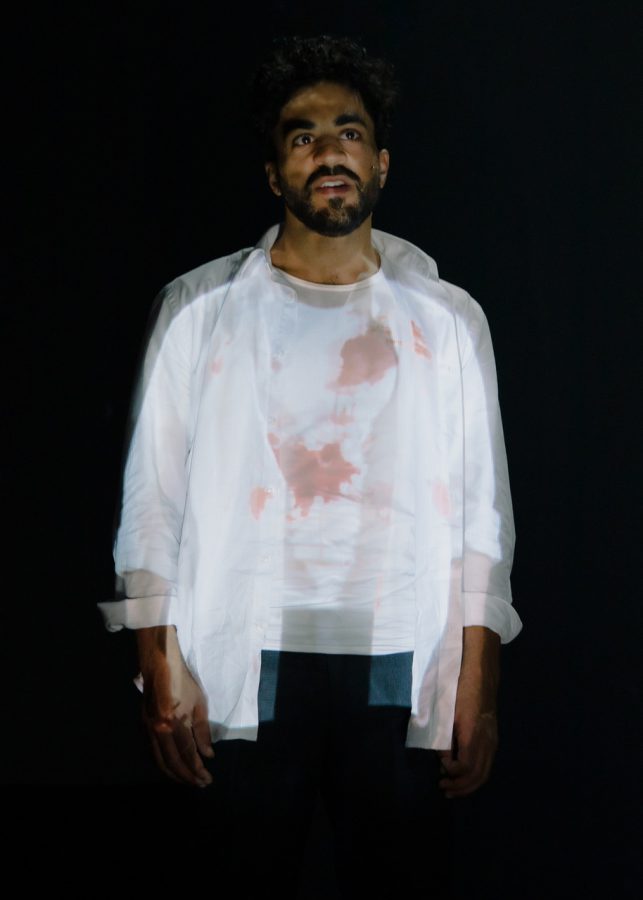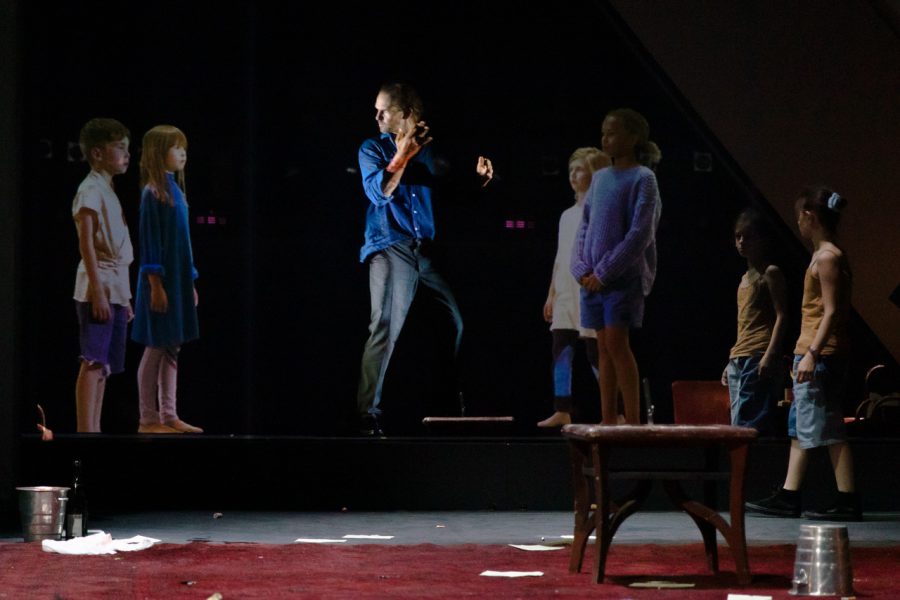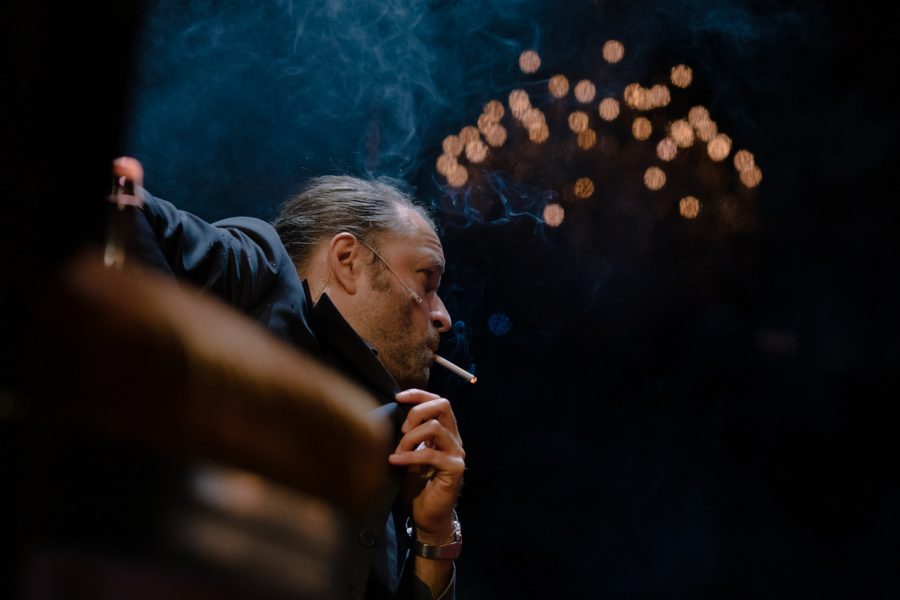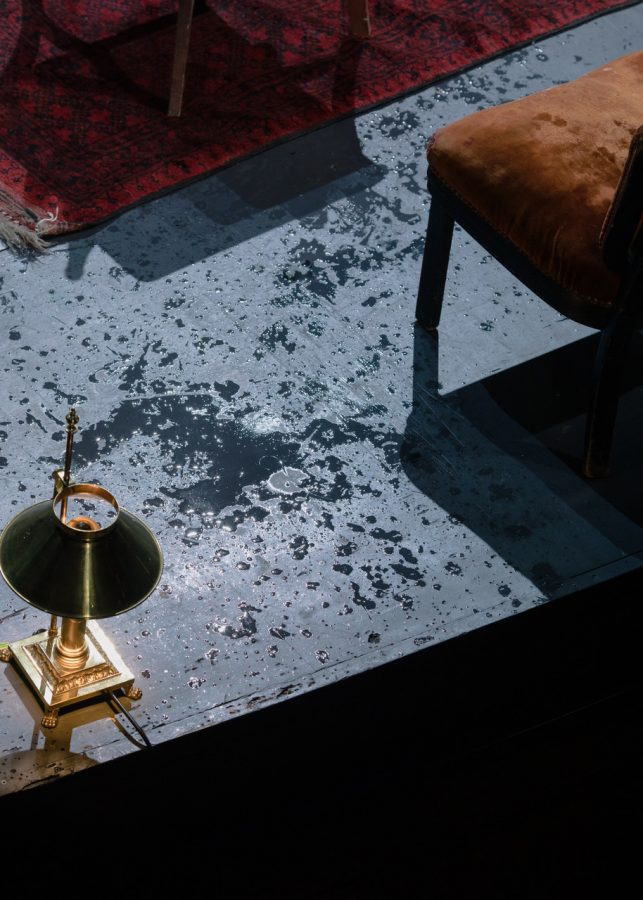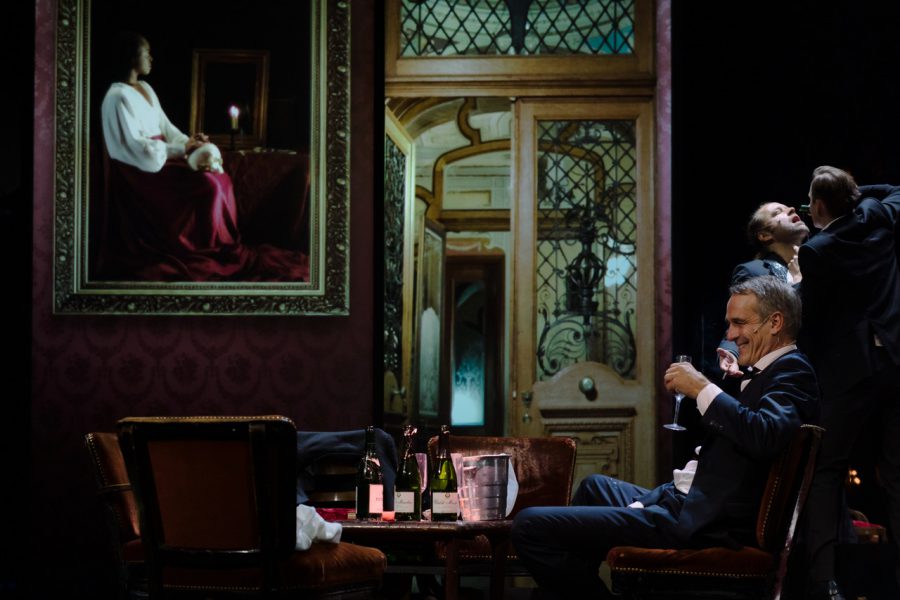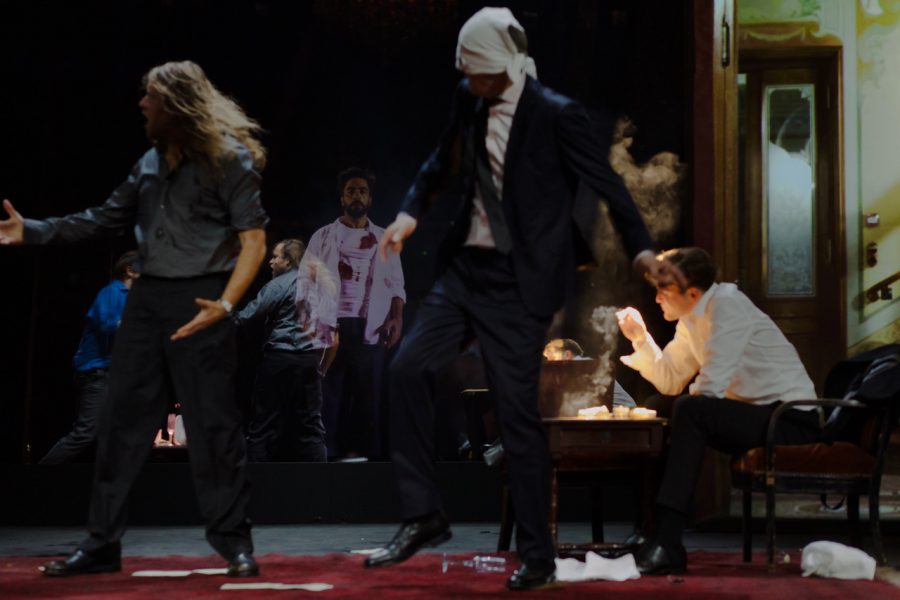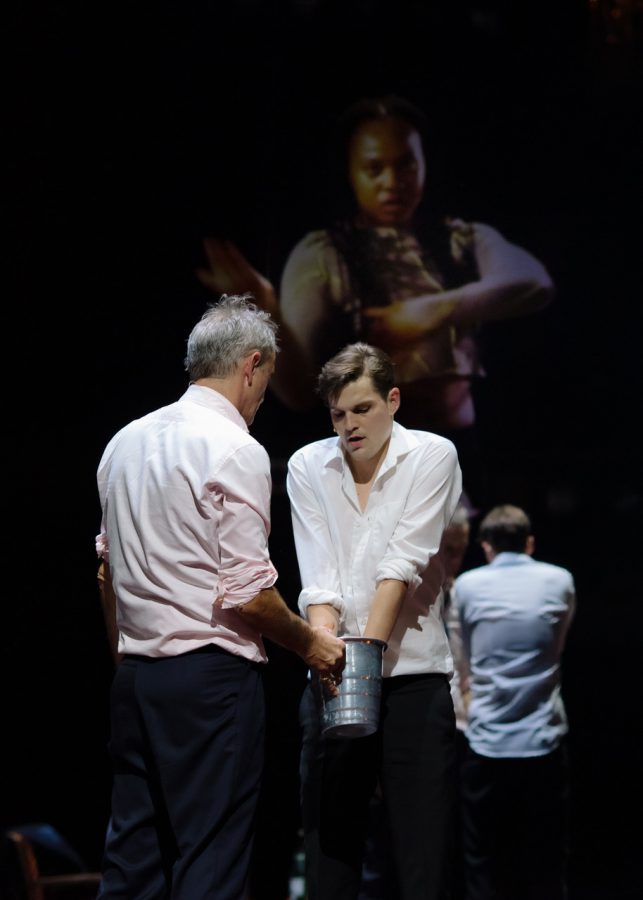Before the Sky Falls
2021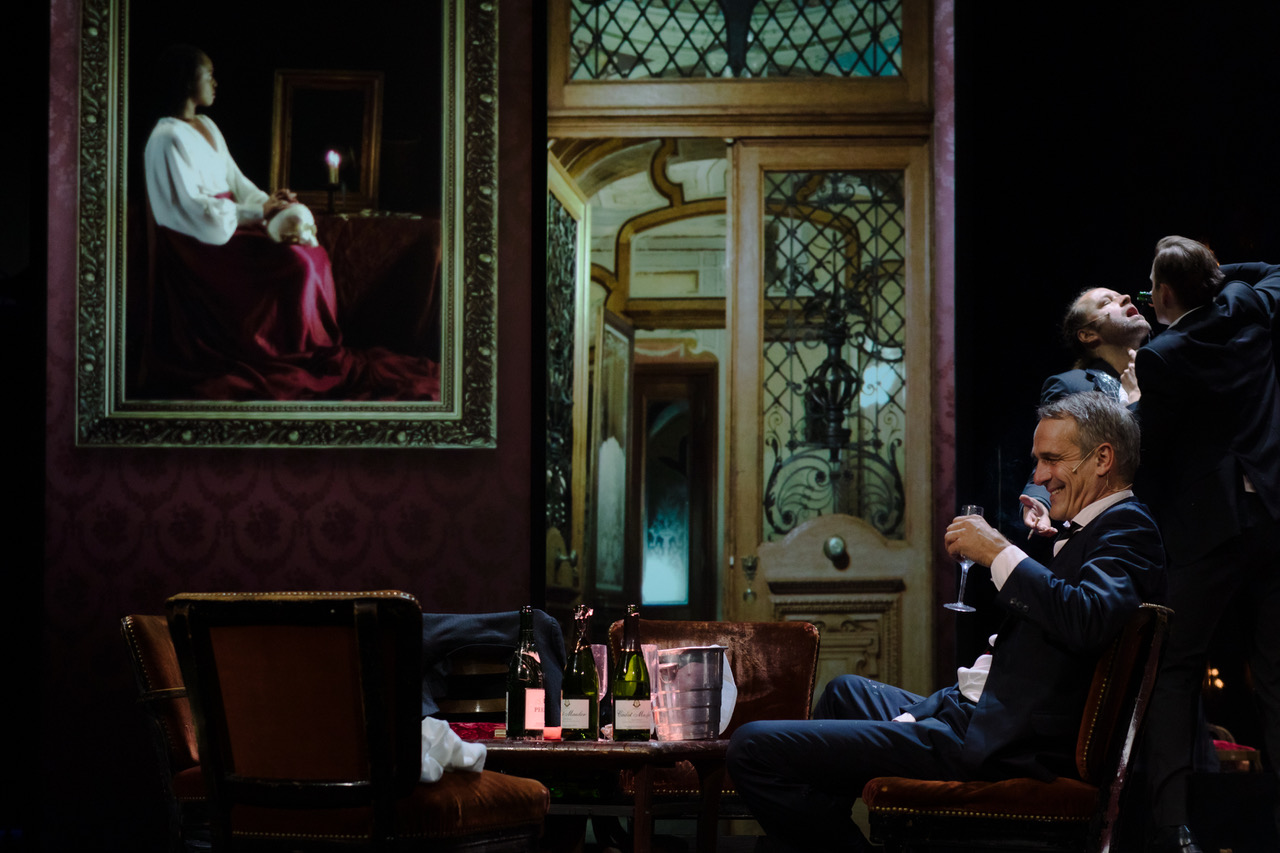
Macbeth is the story of an ambitious tyrant at the heart of a network of macho men who are corrupt, violent and misogynistic. As such, Macbeth would appear to be the literary prototype of toxic masculinity, and his leadership a mirror for current authoritarian regimes all over the world. In Brazil, for example, which is the native country of Christiane Jatahy. In Before the Sky Falls, the director takes on the classic Shakespeare play, presenting us with men who are drunk on power and inclined to devour anything that seems weak, feminine or fragile… until the spirits of the Amazon summon the forest and fight back. Guided by the philosophy of the Yanomami, an indigenous people from the north of Brazil, Jatahy has the witches’ oracle pervading Macbeth’s sleep and the rainforest crowding the stage.
Known for her judicious blending of theatre and film, and familiar to Zurich audiences for previous works of hers performed at the Theaterspektakel, Christiane Jatahy is now coming to the Schauspielhaus to pursue her political theatre work with the house ensemble.
Before the Sky Falls is the second part of the Trilogy of Horror.
TRILOGY OF HORROR
In recent years, Brazil has begun a flirtation with an extreme right-wing regime, endangering the very recently conquered democracy. Faced with the urgency of the situation in her homeland, it was clear to Christiane Jatahy that her art – the expression of a continuous exploration of the boundaries between cinema and theater, between fiction and reality, between inertia and the need for change – would be a weapon in the struggles that would need to be fought.
In the first two chapters Entre chien et loup (premiered at the Avignon festival 2021,starting from the film Dogville), zooms in on the mechanisms of fascism. And Before the sky falls (created at the Schauspielhaus Zurich in October 2021) connects Shakespeare’s Macbeth to The Falling Sky by Davi Kopenawa and Bruce Albert to talk about the violence of toxic masculinity, the political power of patriarchy, and its inherent aggression against the feminine in all its emanations – women, children, and ultimately nature and the earth itself. Closing the trilogy, After the silence/ Depois do silêncio (opened at the Wiener Festwochen, in Vienna, in June 2022) speaks of the issues of race, the denial of history, territory, and resistance, revolution. Based on Itamar Vieira Junior’s novel Torto Arado, it marks Christiane Jatahy’s return to creating in Brazil, with Brazilian actresses, in Portuguese.
More information: https://www.schauspielhaus.ch/en/kalender/21319/before-the-sky-falls
Video
Gallery
Press review
“Quite intimately, the Yanomani text combines with “Macbeth”, Kodder’s snout everyday talk with Shakespeare, at times introduced with a source note: “You say that in Act 3, Scene 5”. Everything mixes in this phenomenal evening: video and live performance, historical and contemporary drama.” (Valeria Heintges, Nachtkritik, 10/27/2021)
“Thanks to the stunning acting performances, we get into it, stay with it. Will we, in the end, have gone along for nearly two hours, hung along with this Macbeth and his men; this ruthless examination of what whores, lies, steals and murders inside us.” (Alexandra Kedves, Tages-Anzeiger, 10/28/2021)
“Far-fetched it is not: the prophecy that Macbeth will not perish until the forest is upon him, linked with passages from Davi Kopenawa’s book “The Falling Sky” becomes very concrete. The shaman, spokesman for the Yanomami people, talks there about the importance of the rainforest and the consequences of its destruction by gold prospectors, cattle ranchers, loggers.” (Alexandra Kedves, Tages-Anzeiger, 10/28/2021)
“Grandiosely, Jatahy succeeds in accessing the Brazilian present with Shakespeare. The director even takes the Macbeth fable one painful turn further. Namely, when the men’s clique elects a successor for the boss who has been destroyed in madness and schizophrenia – Malcolm is that in the original – someone comes to power who no longer even pretends to think politically: instead, only as a criminal, murderous monster.” (Michael Laages, Deutschlandfunk Kultur, 10/27/2021)
